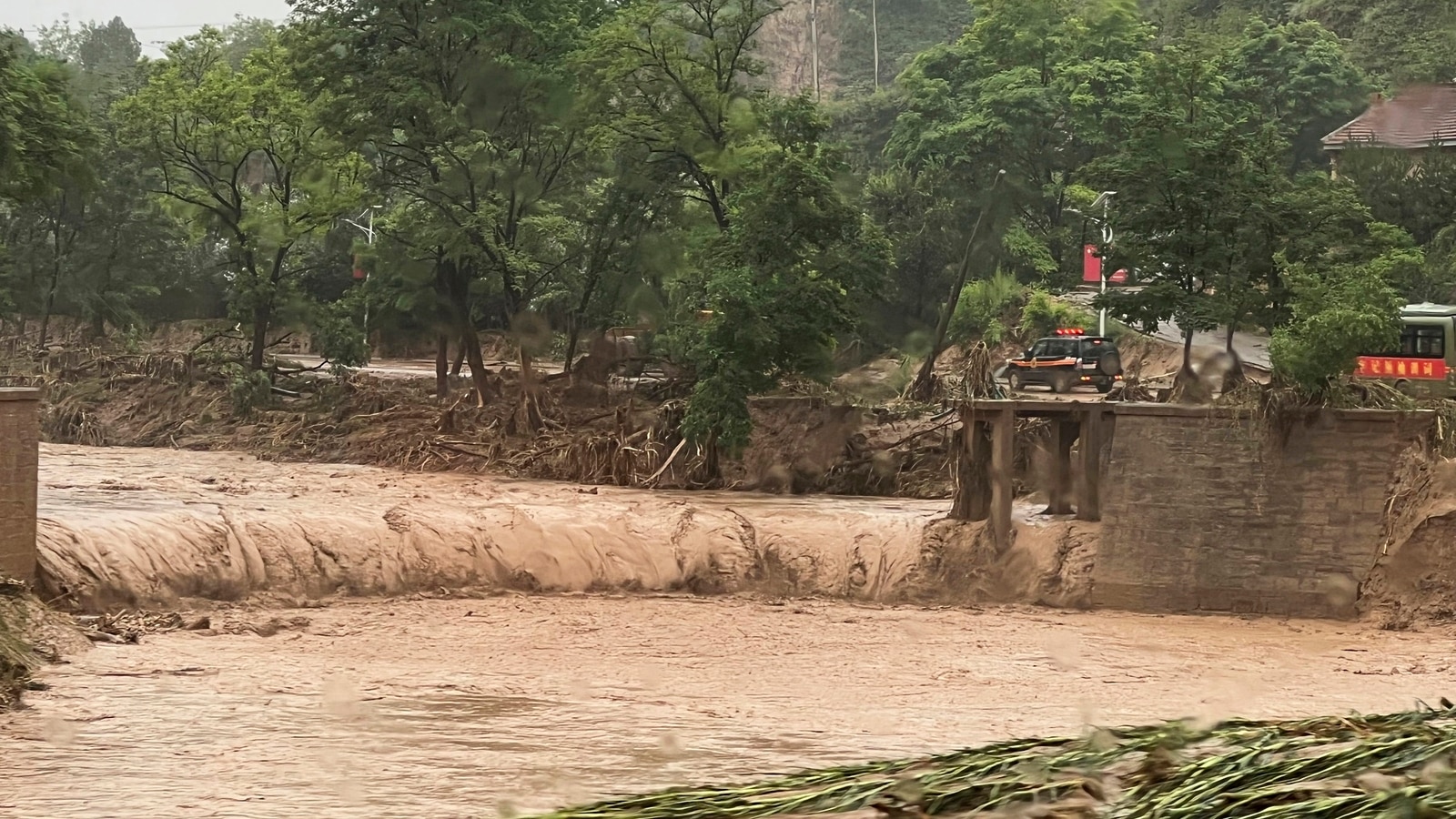 China's Xinjiang warns of flash floods, cotton hazards amid scorching heatwaves | World News
[ad_1]
China's Xinjiang warns of flash floods, cotton hazards amid scorching heatwaves | World News
[ad_1]
China's Xinjiang on Saturday warned of much more flash floods and mudslides and hazards to agriculture as heatwaves swept throughout the area, accelerating the speed of glacial soften and posing dangers for its large cotton manufacturing.
China has been baked by higher than-typical summer season warmth considering that June, with some meteorologists blaming local weather adjust. The excessively sizzling climate has pushed up desire for electrical energy to great properties, places of work and factories. In agricultural areas, drought has been a problem.
Xinjiang's most recent heatwaves have been specifically very long long lasting and common, Chen Chunyan, main pro at the Xinjiang Meteorological Observatory, advised point out media.
She pointed out the serious climate in the south and east of the area, much more than two times the dimensions of France, has presently lasted for about ten times.
Ruoqiang in the southeast of Xinjiang activated a pink notify - the greatest in a 3-tier warmth warning process - on Friday night, forecasting temperatures of forty levels Celsius (104 levels Fahrenheit) or much more for the following 24 several hours.
In 2015, a community news portal noted fifty.3C at a climate station in the vicinity of Ayding, a dry lake in Xinjiang's Turpan Despair.
"Ongoing substantial temperature has accelerated glacial melting in mountainous locations, and brought about pure disasters this sort of as flash floods, mudslides, and landslides in quite a few spots," Chen mentioned.
The China Meteorological Administration mentioned a working day before that the glacial melting in Xinjiang poses a substantial danger of dam failure on a tributary of the Aksu River in the vicinity of China's border with Kyrgyzstan.
Mainly acknowledged for its deserts, Xinjiang is also house to very long mountain ranges alongside its borders, such as the Tian Shan mountains, the Pamirs, the Kunlun mountains and the Karakoram, which have grow to be significantly common for Chinese travelers amid COVID-19 limits on worldwide journey.
This kind of heatwaves could also affect crops, in particular cotton, Chen cautioned.
Xinjiang accounts for manufacturing of about twenty% of the world's cotton, a h2o-thirsty crop. By some estimates, twenty,000 litres of h2o is required to make 1 kilogramme of cotton, adequate for just one T-shirt and a pair of denims.
Xinjiang is not struggling by itself. A different spherical of serious temperatures are envisioned to impact some twenty provinces.
Coastal provinces and the money money of Shanghai are envisioned to be the most impacted, with temperatures as substantial as 39C envisioned on Saturday, mentioned the Nationwide Meteorological Centre.
(Reporting by Shanghai Newsroom and Ryan Woo Enhancing by Sam Holmes)
(*1*)[ad_2]


No comments:
Post a Comment